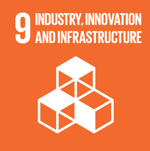Banana and plantain as sources of bioethanol
 Colombia
Colombia
 Costa Rica
Costa Rica
 Ecuador
Ecuador
 Peru
Peru
Executive Summary
The international debate focused on the advantages or disadvantages of biofuels motivated the development of this Project considering, in this case, the high productivity by area of bananas and plantains and the particular fact - in the case of export bananas - of a high percentage of rejection that could be used as energy. Five objectives were set within the framework of a public / private alliance:
- Definition and implementation of critical parameters for the selection of banana and plantain genotypes with the capacity to produce bioethanol, using productivity and adaptability criteria in small producer systems.
- Construction of two micro plants in Ecuador (farmers) and Costa Rica (producers cooperative) for the production of bioethanol as pilot cases.
- Economic, social and environmental feasibility studies on the potential of decentralized bioethanol production by small farmers. Results were not conclusive as they are site specific and depending on production system.
- A strong training component for farmer’s associations and state entities.
- Based on online catalogs, the information generated was organized in real time, from the selection of banana and plantain production plots to the commercialization of the bioethanol produced.
The project contributed significant information to the global debate and its potential impact will depend on future policies and options by governments and enterprises.
The technological solution
The technological solution presents feasibility under certain circumstances -for instance, in some genotypes of bananas and plantains and specific production systems- by means of fermentation and distillation to produce ethanol. While with cereals the biofuel production process is made from starches, in the cases of cane, beets and bananas and plantains sugars are the starting point. Although it is possible to these species to produce biofuels, market forces or other technological alternatives will determine its feasibility in the future.
Results
In order to achieve the defined objectives, two collections of musa germplasm were established in Colombia (178 accessions) and Ecuador (16) to select promising materials. A flour bank was also prepared for evaluation as a fermentable raw material (which by subsequent distillation generates bioethanol). A central question that the project tried to answer is the energy balance, it essentially depends on the genetic material and the productive system. Based on studies in Costa Rica and Ecuador it was determined that for the conditions of COOPEDOTA (Costa Rica) and organic banana production in Ecuador the energy balance is positive, however, for conventional banana production in Ecuador the balance was negative.
The project provided a significant opportunity for training and for the dissemination of knowledge. In the first case, it was possible to develop 11 grade theses and share information, by different means, with at least 3,600 producers. Regarding dissemination, several technical and scientific publications and an online catalog were prepared with the description of the collection of available genotypes.
Beneficiaries
The project generated information and knowledge benefits for many actors, in the case of professionals, a total of 11 degree theses in industrial engineering were supported. With regard to producers, it is estimated that some 3,600 received information on the results and technologies generated. Two articles on post-harvest quality in indexed Latin American magazines stand out as scientific publications.
Sustainable Development Goals


Participating Organizations
Executor
- International Center for Tropical Agriculture (CIAT) - Colombia
Co-executor
- COOPEDOTA - Costa Rica
- Escuela Politécnica del Litoral (ESPOL) - Ecuador
- FEDEPLATANO - Colombia
- Instituto Nacional de Innovación Agraria (INIA) - Perú
- MUSÁCEAS - Colombia
- Umanizales - Colombia




